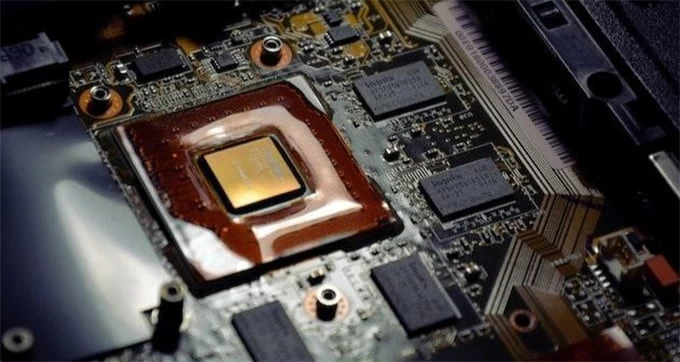
How to Record MP3 Audio in Windows 10
By understanding laptop processors and knowing the price of upgrading a laptop processor and the factors that affect it, you can make a potential investment in upgrading your laptop.

Are you tired of your laptop struggling to keep up with your tasks?
Are you longing for a faster and more powerful computing experience?
Upgrading the processor on your laptop might be the solution you're looking for. But before diving into the realm of faster processing speeds, it's essential to consider the cost involved.
This article will delve into the intriguing world of laptop processor upgrades and unravel the mystery surrounding their price tags. Whether you're a budget-conscious user or a gaming enthusiast seeking ultimate performance, join us as we explore the factors influencing the cost and discover the potential investment required to give your laptop a much-needed boost.
Laptop processors are vital components that determine your device's speed, efficiency, and overall performance. They act as the brains behind your laptop, executing instructions and calculations to ensure smooth operation. Familiarizing yourself with laptop processors enables you to make informed decisions when it comes to upgrading or purchasing a new laptop.
Two major brands dominate the laptop processor market: Intel and AMD. Each brand offers a range of processors tailored to different user needs and budgets. It's important to explore the specifications and features of each brand to select the one that aligns with your requirements.
When evaluating laptop processors, consider their architecture, which directly influences capabilities and performance. Processors consist of multiple cores, the processing units responsible for multitasking.
Dual-core processors handle two tasks simultaneously, while quad-core processors handle four, resulting in improved multitasking and performance.
To select the right processor, assess your specific needs. A mid-range processor with dual or quad cores suffices for general tasks like web browsing and document editing. Resource-intensive activities like gaming or video editing benefit from processors with higher core counts and clock speeds, such as Intel Core i7 or AMD Ryzen 7 series.
By understanding the basics of laptop processors, including the different brands, architecture, core counts, clock speeds, and compatibility, you can make informed decisions when it comes to upgrading or purchasing a laptop. Considering these factors will help you find the right balance between performance, cost, and compatibility, ensuring that your laptop meets your specific computing needs.
When it comes to upgrading a laptop processor, several factors come into play that can influence the overall cost. Understanding these factors is crucial in determining the budget required for the upgrade. Here are the key factors that can influence the cost of upgrading a laptop processor:
1. Processor Type and Brand: Different processor types and brands have varying price ranges. High-performance processors from renowned brands often come with a higher price tag compared to budget-friendly options. Factors such as clock speed, number of cores, cache size, and architecture also contribute to the cost variation.
2. Performance Requirements and Desired Upgrade: The level of performance you seek from your laptop will impact the cost. If you're aiming for a significant boost in processing power, you may need to invest in a higher-end processor, which can be more expensive. On the other hand, if you have moderate requirements, a mid-range processor might suffice, reducing the overall cost.
3. Compatibility with the Laptop's Motherboard: Compatibility between the processor and the laptop's motherboard is essential. Not all processors are compatible with every laptop model. Upgrading to a processor that aligns with your laptop's motherboard specifications is crucial for a successful installation. In some cases, if the desired processor is incompatible, it may require additional expenses to upgrade the motherboard.
4. Additional Components or Upgrades Required: Upgrading the processor may necessitate other component upgrades. For instance, you might need to upgrade the laptop's RAM or cooling system to accommodate the new processor's requirements. These additional components can contribute to the overall cost of the upgrade.
5. Labor and Professional Installation Costs: Unless you have the necessary technical skills, you may require professional assistance for the processor upgrade. Hiring a technician or availing of installation services can add to the overall cost. The complexity of the installation process and the expertise required can affect the labor cost involved.
Alos Read: How to Record Video on Lenovo Laptop
Determining the cost range for a laptop processor upgrade involves considering several factors. The type and brand of the processor impact the cost, with well-known brands usually being more expensive. Performance requirements and desired upgrade levels also influence the price, with more demanding tasks requiring higher-end processors.
Compatibility with the laptop's motherboard and potential additional upgrades can add to the overall cost. Labor and professional installation costs should be taken into account as well. Researching different processor options, comparing prices, and seeking expert advice can help establish a realistic cost range. Balancing performance needs with the budget is crucial for a cost-effective upgrade.
While determining the cost of upgrading the processor on a laptop, there are several additional considerations to keep in mind. These factors can significantly impact the overall cost and feasibility of the upgrade. Let's explore them further:
1. Do-It-Yourself (DIY) Upgrade: If you have experience with computer hardware and feel confident in your technical skills, you may consider performing the processor upgrade yourself. This option can save you money on labor costs but requires caution and proper knowledge to avoid damaging your laptop.
2. Professional Installation: Professional installation is worth considering for those who are less familiar with computer hardware or want to ensure a seamless upgrade process. Hiring an expert technician can provide peace of mind, but it will come with additional labor costs.
Upgrading the processor on a laptop carries some inherent risks and challenges that need to be considered:
1. Compatibility Issues: Laptop processors are designed to be compatible with specific motherboard models. Ensuring the new processor is compatible with your laptop's motherboard is crucial. Incompatibility can lead to system instability or even complete failure.
2. BIOS Updates: Some processor upgrades may require a BIOS (Basic Input/Output System) update to support the new hardware. This process can be complex and should be approached with caution, as an incorrect update can result in system malfunction.
3. Warranty Concerns: Upgrading the processor on your laptop may void the manufacturer's warranty. It is essential to review the warranty terms and conditions before proceeding with any modifications.
Depending on your specific needs and budget, upgrading the processor may not always be the most cost-effective solution. Consider these alternatives:
1. Adding More RAM: Increasing the laptop's RAM (Random Access Memory) can enhance overall performance, especially in multitasking scenarios.
2. Upgrading Storage: Switching to a solid-state drive (SSD) can significantly improve boot times and application loading speeds.
3. Optimizing Software: Regularly updating your operating system and applications, performing a disk cleanup, and removing unnecessary startup programs can enhance performance without needing a processor upgrade.
Conclusion
In conclusion, upgrading the processor on a laptop can be a worthwhile investment for those seeking improved performance and faster computing speeds. However, determining the cost of such an upgrade requires careful consideration of several factors.
The type and brand of the processor, compatibility with the laptop's motherboard, additional components or upgrades needed, and labor costs all play a role in the final price. You can determine a cost range for the upgrade by researching processor options, assessing compatibility, and exploring online marketplaces.
Additionally, it's important to consider the feasibility and cost-effectiveness of upgrading older laptops. Whether you choose a DIY approach or professional installation, thorough research and expert advice are crucial. By making an informed decision, you can give your laptop the performance boost it deserves without breaking the bank.
1. How much does a typical processor upgrade for a laptop cost?
The cost of a typical processor upgrade for a laptop can vary depending on various factors, such as the laptop's brand, model, and specifications. On average, you can expect to spend anywhere between $100 to $500 for a processor upgrade, including the cost of the processor itself and any additional installation fees.
2. Can I upgrade the processor on any laptop, or are there limitations based on the laptop's specifications?
The ability to upgrade the processor on a laptop depends on the laptop's design and specifications. While some laptops allow for easy processor upgrades, many laptops have non-upgradable or soldered processors, making upgrading impossible or extremely difficult. It's essential to check the specifications of your specific laptop model before considering a processor upgrade.
3. Before investing in a laptop processor upgrade, are there any risks or drawbacks to consider?
Before investing in a laptop processor upgrade, it's crucial to consider potential risks and drawbacks. These include compatibility issues, potential voiding of warranty, and the possibility that the upgraded processor may not provide a significant performance boost. It's recommended to research thoroughly and consult with professionals to make an informed decision.